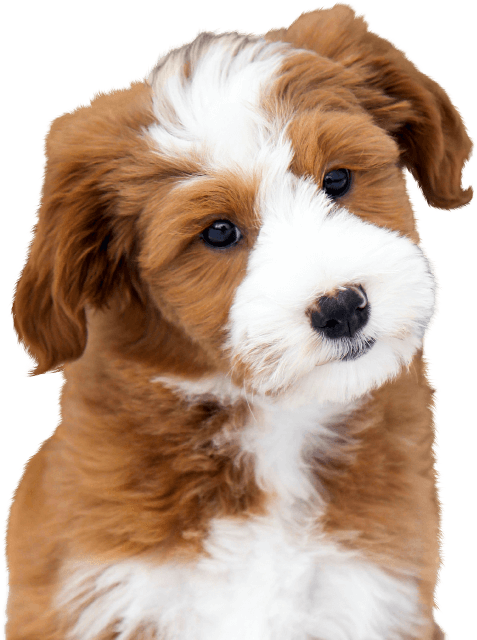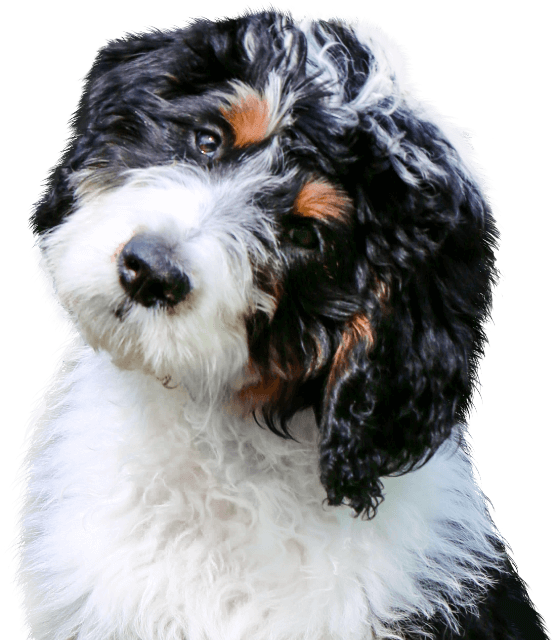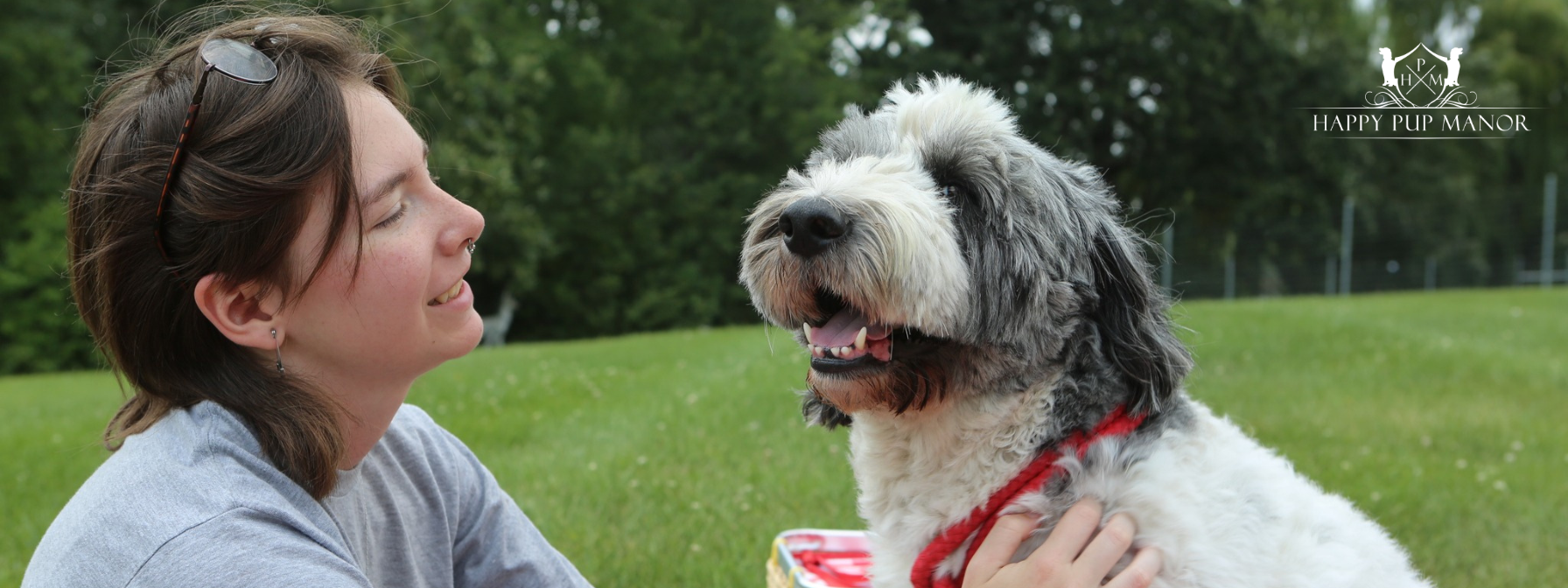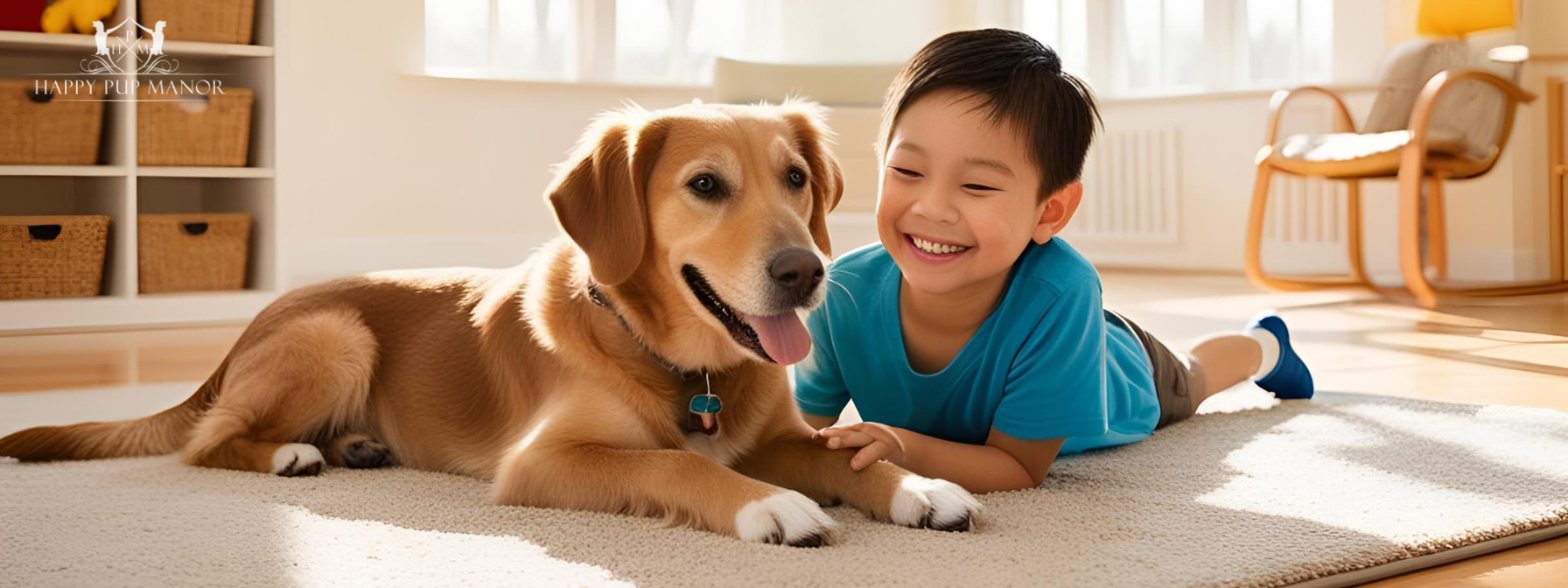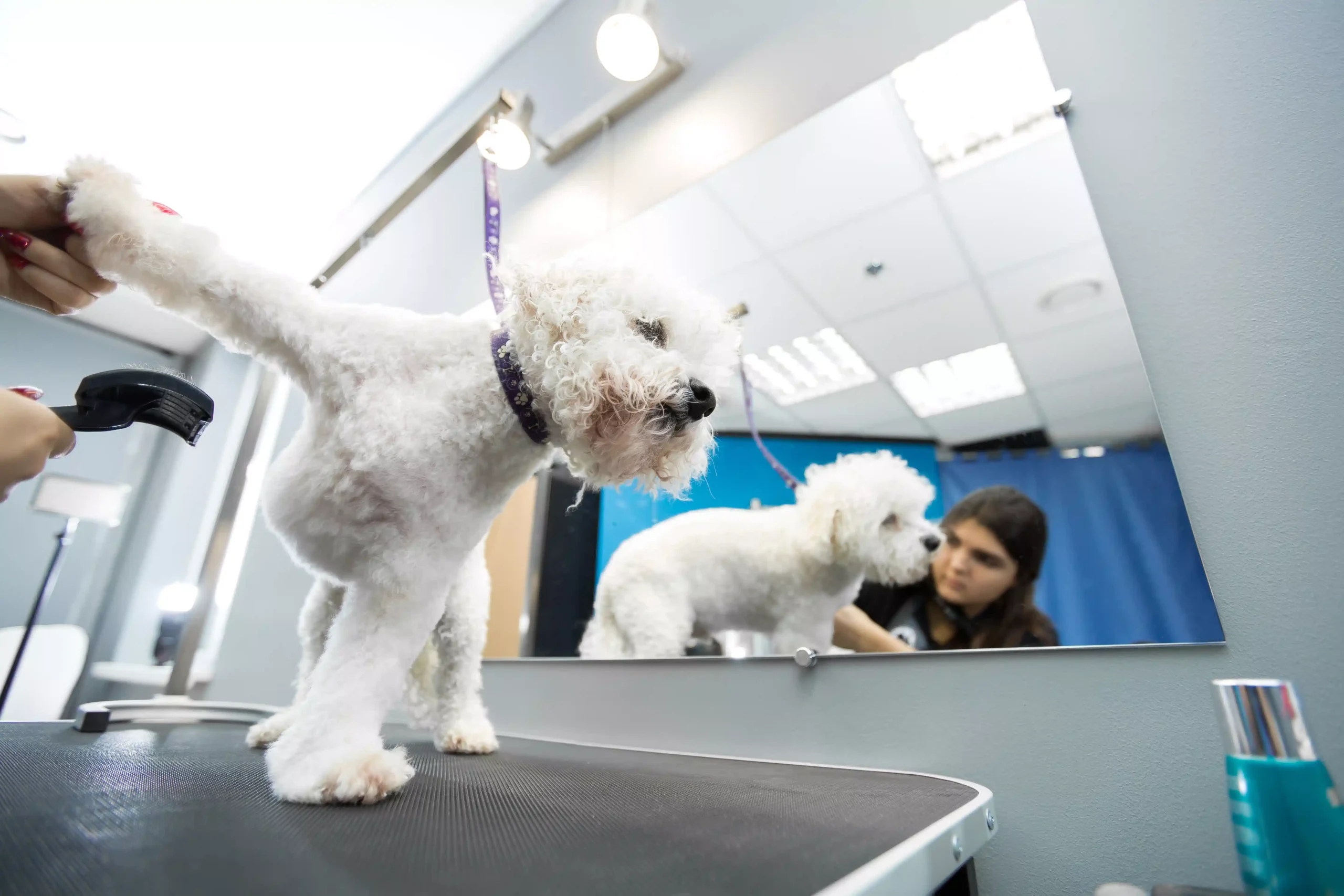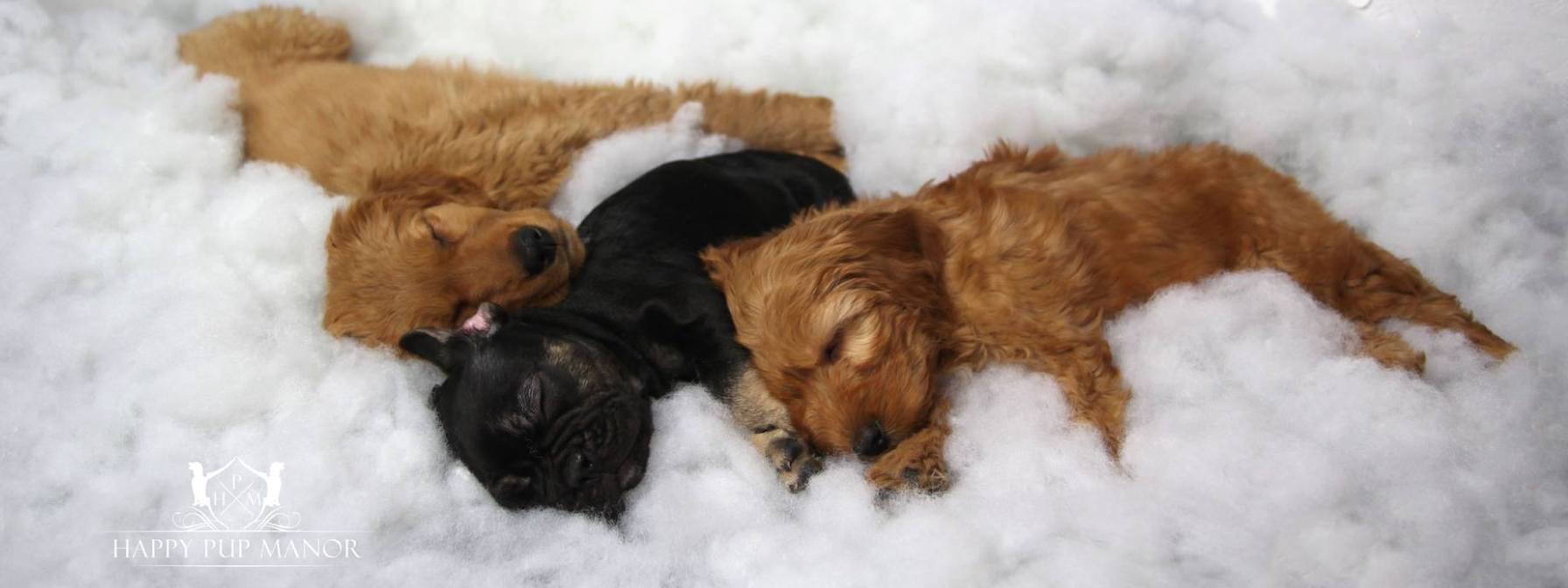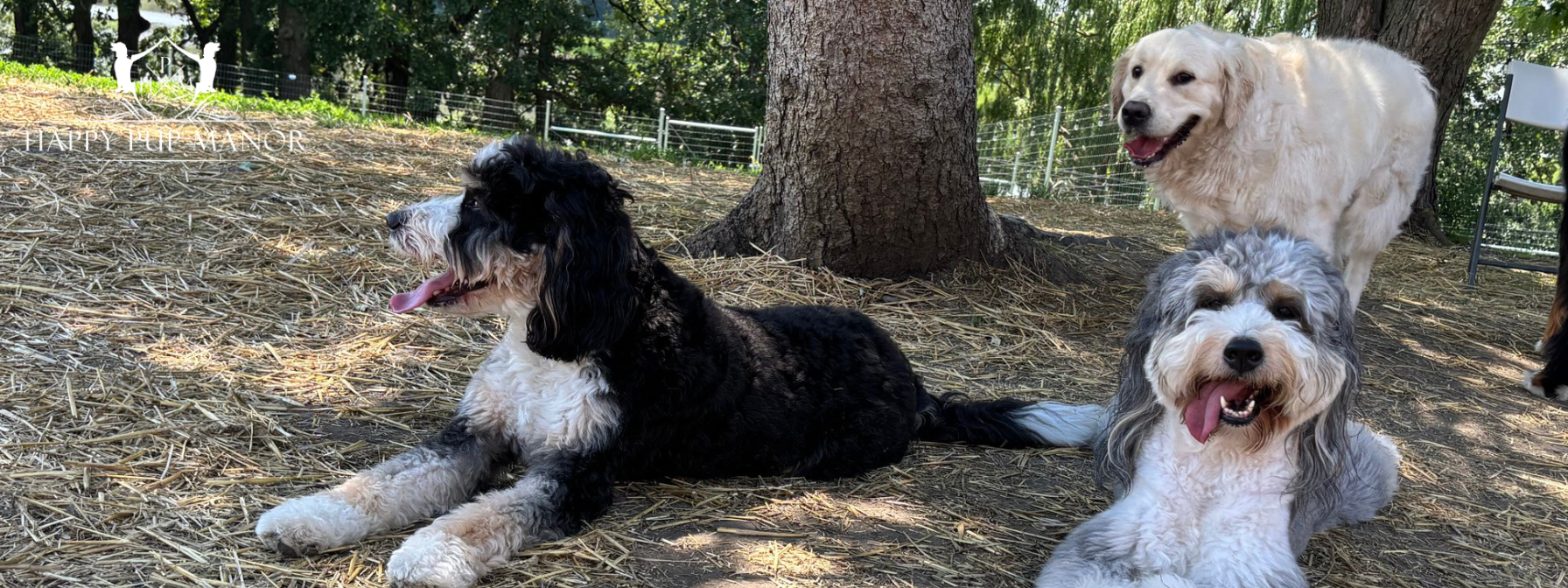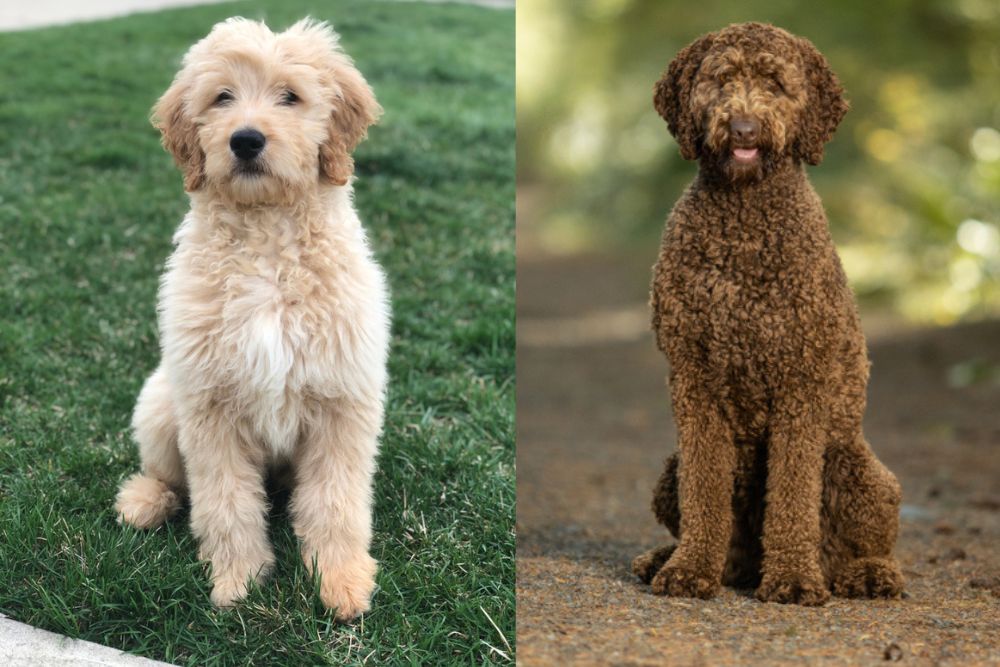Choosing the Best Chew Toy for Your Puppy

Choosing the Best Chew Toy for Your Puppy
If you’ve ever owned a puppy, you know how much they love to chew. Shoes, carpet, furniture. You name it, and they will chew. While a trainer like Happy Pup Manor can assist with your pup’s mouthiness, offering them chew toys is also a great way to keep your shoelaces intact! To help you choose the best chew toy for your puppy, Gabby, owner and lead trainer of Happy Pup Manor, compiled some helpful tips and information to make your decision-making process easier.
What is a Chew Toy?
There are quite a few options when choosing a chew toy for your puppy! To simplify things, think about chews as either edible or non-edible.
- Edible Chews: These chew toys are made of materials that are safe and easy for your pup to eat. Examples include bully sticks, beef trachea, chicken feet, pig snouts and ears, Himalayan yak chew, and tendons. Rawhide bones are marketed as edible chews, but we do not recommend them as they are a major choking and blockage hazard. Even without the safety issue its hard to offer them to puppy after you realize they achieve that bright white color through bleaching!
- Non-edible Chews: These chews are made of materials that are not safe for your puppy to ingest. These are often made out a tougher material, making it harder for your pup to chew off sections and accidentally swallow them. Examples of non-edible chew toys include Nylabones, antlers, horns, hooves, bones from a butcher, and larger animal bones.
It is important to check where your pup’s chew is coming from. Always avoid chews that come from China. In 2015 alone, the FDA reported more than 6,200 pups who fell ill from contaminated chews, and 1,140 deaths from treats containing contaminated chicken, duck, or sweet potatoes. The American Veterinary Medical Association website maintains a list of recalls and safety alerts, and for immediate updates, follow @AVMARecallWatch on Twitter.
When Can a Puppy Start Using Chew Toys?
Your puppy can start using a chew toy right away. Different chew toys are appropriate for different sizes and ages of puppies. Smaller and younger puppies do not have the jaw strength for harder chews, such as antlers, and should be saved for older, larger pups. The size of the chew is an equally important consideration – a 3-pound puppy will need a smaller chew, such as a 4” nylabone, while a 25-pound puppy should avoid small toys as they pose a choking hazard – a buffalo horn will be a more size appropriate choice.
The hope with giving a chew toy to your pup is that it gives them something hard to chew on, but not tough enough to break their rather thin, sharp teeth.
How Many Chew Toys Should a Puppy Have?
Puppies, much like their human owners, love to have a variety. Buy several options of chew toys for your pup, mixing in both edible and non-edible. You don’t want to give them all of the toys at once, however. Try rotating chews a few times a week, giving them an edible option for a couple of days, then offering them a harder, non-edible choice. Over time, you will learn what works best for your pup to chew on.
Here’s the rough schedule I use with my puppies – remember you should leave non-edible chews out all the time so puppy can always make a good chewing choice, but that you should rotate them to give some variety. Target having 2-3 kinds of edible chews on hand and another 4-6 non-edible that you’ll rotate a few at a time:
- Sunday: I’ll put the current non-edible chews in the dishwasher while preparing for the week on Sunday night while tossing out a few new ones to occupy the furry family members while I review the calendar
- Monday: I share an edible chew to make sure no one catches a case of the Mondays
- Wednesday: During a TV break Wednesday night I like to share another edible chew. This is also a good reminder when I’ll rotate the non-edible chews through the dishwasher again.
- Friday: Share an edible chew to celebrate the end of the workweek as a pack
- Saturday: Usually another edible chew, especially if the weather kept us from playing outside
Should I Rotate Out a Chew if I Know it Has Become Their Favorite?
No! If puppy has a favorite chew, let them enjoy it and in fact buy a second. Making that chew scarce could start them down a path of resource guarding. If you encounter growling and other protective behaviors over their chews and toys, immediately contact a reputable trainer to ensure the problem doesn’t become worse – this is an entry point to behavior that will end with biting and must be addressed.
How Do I Get a Puppy to Chew on Toys and Not the Carpet or Sofa?
Puppies require continual alert supervision when they are not in their crate – left unsupervised, potty accidents and poor chewing choices are inevitable, after all, they don’t know any better! If you cannot watch your puppy, please put them in their crate or an exercise pen where they will be safe.
If puppy goes to chew the sofa under your watchful eye, you can redirect by offering a toy or chew. “Hey puppy, why don’t you come give THIS a try instead” will get them on the right track. If a few redirects don’t do the trick, your puppy is likely a little overtired and needs a nap in their crate. This helps puppies learn to make better choices when they are tired.
Try to make the substitution match the needs your puppy is expressing
- Carpet Chompers often enjoy soft rope toys
- Sofa Samplers will likely enjoy a plush toy
- Chair-leg Chewers might enjoy a toy with wood in it, such as a benebone
How Do I Sanitize Chew Toys?
Most non-edible puppy chew toys can be hand washed with soap and water. However, from our own experience, most hard chews can be put on the top rack of the dishwasher or in your washing machine and be fine. The biggest negative about putting chews in with other items is that they tend to gather a lot of hard-to-remove fur and spread it to your other items.
Need Help with a Mouthy Pup? Call Happy Pup Manor!
The team at Happy Pup Manor has helped hundreds of pup graduates break bad chewing habits and learn obedience commands. If you’re in need of assistance with training your puppy, contact us today! We specialize in Doodles, Retrievers, and a several smaller breeds.
